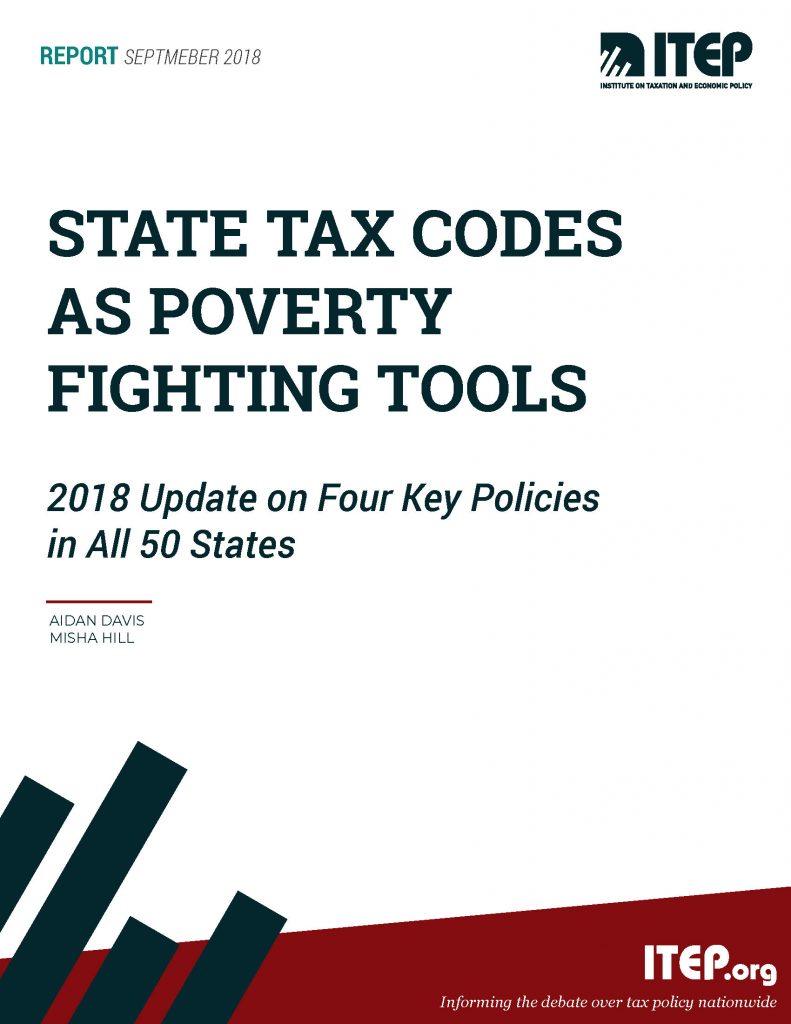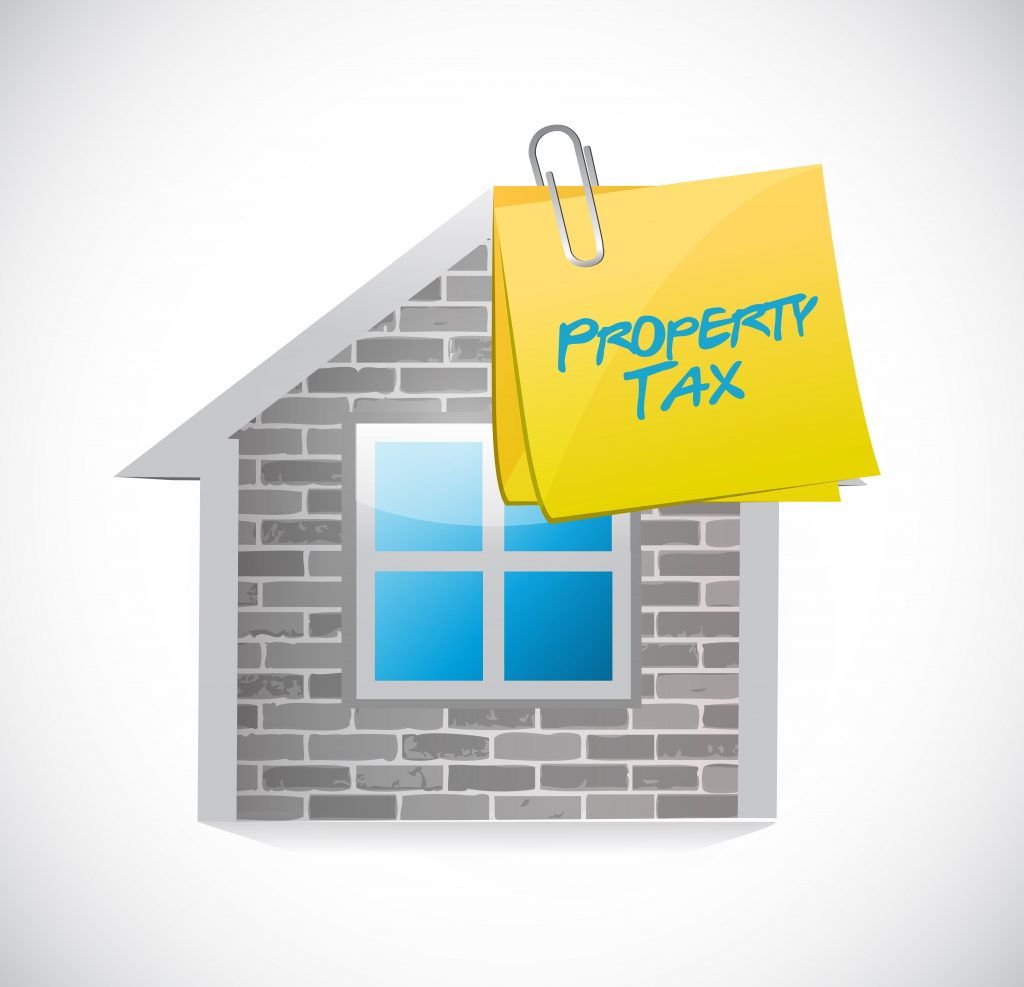The Rundown is back after a few-week hiatus, with lots of state fiscal news and quality research to share! Maine lawmakers found agreement on a response to the federal tax-cut bill, states continue to sort out how they’ll collect online sales taxes in the wake of the Wayfair decision, and policymakers in several states have been working on summer tax studies and other preparations for 2019 legislative sessions. Meanwhile, work on ballot measures and candidate tax plans to go before voters in November has been even more active, particularly in Arizona, California, Florida, Hawaii, and Missouri. Our “What We’re Reading” section has lots of great research and reading on inequalities, cities turning to regressive fees, states’ preparations for the next recession, and much more. And we at ITEP have been hard at work during this Rundown hiatus as well, updating our most key resources on the upside-down nature of state and local taxes and how states can work to improve them; we’re saving some of the best for later, but see below for an update on some what we’ve been working on.
— MEG WIEHE, ITEP Deputy Director, @megwiehe
Major State Tax Proposals/Developments:
- MAINE legislators reached and enacted a mixed-bag compromise response to the federal tax-cut bill. The compromise eschews the most extreme versions that would have exacerbated the costly and regressive nature of the federal bill and includes some property tax help for homeowners and renters, but still reduces total revenues at a time when building up reserves and boosting investments would be more prudent. — AIDAN DAVIS
State Roundup:
- SOUTH DAKOTA legislators held a brief special session to ensure the state, which was the petitioner in the Wayfair Supreme Court case on online sales taxes, will be able to collect those revenues beginning in November.
- COLORADO and WISCONSIN also joined the list of states requiring online retailers to collect sales taxes.
- The MINNESOTA Department of Revenue announced that taxpayers will be able to claim the larger of their state standard or itemized deductions regardless of what they claimed on their federal taxes for tax year 2018. This will prevent some taxpayers from a state tax hike if they benefit from new higher standard deductions on their federal taxes.
- Lawmakers in NEBRASKA are meeting this summer to try to find agreement on perennial property tax and school funding issues. Some interests in the state are focused on increasing the state’s reliance on regressive sales taxes to pay for property tax reductions, but actual Nebraskans recently polled prefer the opposite: investing in the middle class by raising taxes on wealthy individuals and corporations.
- Lawmakers in WYOMING, looking to diversify their revenue base, reexplore the possibility of instituting a state corporate income tax.
- The majority of NEW JERSEY residents polled would support legalized recreational cannabis if the revenue went toward property tax reductions.
- TEXAS Gov. Greg Abbott supports amending the state’s constitution to ban an income tax. The state does not currently levy an income tax but is authorized to do so with a majority vote by Texas voters. Amending the constitution to prohibit an income tax requires 2/3rds support from both legislative chambers and a majority vote from voters.
- SOUTH DAKOTA school districts are increasingly using “opt-outs” to raise needed revenue in the face of stagnating state aid.
On (and Off) the Ballot:
- Due to an ARIZONA Supreme Court ruling that the ballot language was unclear, state voters will not be able to vote on Proposition 207, which would have raised income taxes on high-income households to fund needed education investments. For the full story on the chronic underfunding of schools and the Arizona teachers who banded together to put the proposition on the ballot, check out this write-up by the New York Times.
- HAWAII residents, despite a legal challenges, will be able to vote on a constitutional amendment this fall that would establish a property tax surcharge on investment property—specifically those over $1 million—to help fund public education. If approved, Hawaii would join 49 other states in using property taxes for this purpose.
- A proposal to levy a statewide soda tax got the green light to start collecting signatures to appear on the 2020 ballot in CALIFORNIA. The initiative would dedicate funds for addressing childhood obesity and dental disease and challenges a recent law that bans local soda taxes over the next decade.
- The upcoming governor’s race in ILLINOIS may be determinative in whether the state eventually adopts a graduated personal income tax or its current flat rate remains intact.
- Opposition to two tax-related ballot measures in FLORIDA is coalescing, as a political action committee has formed to fight against them. Amendment 1 would bring about an expensive and untargeted increase in the state’s homestead exemption, and Amendment 2 would require a special supermajority vote to raise tax revenues, harming the state’s ability to budget sustainably.
- Also in FLORIDA, gubernatorial candidate Andrew Gillum is advocating for raising taxes on larger corporations to fund teacher salary improvements, other education investments, and potentially a “Medicare for all” health plan.
- Proponents of a gas tax update in MISSOURI are getting organized and spreading their message too.
- MARYLAND gubernatorial candidate Ben Jealous hopes to reduce the state’s regressive sales tax if elected, proposing to make up the lost revenue through online sales tax collections and closing an income tax loophole. Incumbent Larry Hogan reiterated his own goal to eventually eliminate taxes on retirement income.
What We’re Reading…
- Issues for cities from Governing: relying on fines and fees instead of taxes as revenue source is costly for everyone in the long-run; and troubling times ahead as revenues slow while spending rises.
- Also from Governing, while the SCOTUS gave states the green light to start collecting sales taxes from online retailers, it looks like the legal challenges aren’t quite over as states continue to work through the complexities of implementation.
- A New York Times column argues that we need new ways of measuring the economy—statistics that capture how more than just the most affluent are doing.
- And speaking of the economy, new S&P ratings indicate that most states aren’t prepared to weather the next recession based on balances in their Rainy Day funds.
- Inequality.org’s Sarah Anderson argues on Buzzfeed that federal, state, and local governments can and should refuse contracts and/or raise taxes on corporations that contribute to increasingly extreme economic inequalities, just as is already done to push back against race and gender discrimination.
- The Center on Budget and Policy Priorities (CBPP) weighs in on new Census poverty data, highlighting states’ opportunities to dismantle racial barriers to broader prosperity and boost progress on income and poverty.
- CBPP also connects new research on low teacher pay to years of states reducing their investments in school funding.
- Bloomberg reports that Amazon’s strategy of pitting cities against each other in a tax subsidy bidding war to land the company’s HQ2 development is turning against it: “As the world’s second-most valuable public company weighs the tax breaks and other goodies proffered by eager suitors, it stands accused of being a corporate welfare leech that should be giving the government and its workers more rather than further milking taxpayers to expand.”
- A new report on family well-being in Indiana shows that over the past decade, tax policy decisions have benefited the state’s wealthiest residents while median incomes dropped.
What We’re Writing…
- ITEP Research Director Carl Davis writes in The Hill that the IRS was right to take a comprehensive approach in its proposed regulations dealing with state “workaround” tax credits designed to avoid the new $10,000 cap on the state and local tax (SALT) deduction. If adopted, this approach will also crack down on private school voucher credits that several states currently use to allow their residents to funnel tax dollars to private schools and, in some cases, even turn a profit in the process. More ITEP resources on this topic are available here.
- ITEP Deputy Director Meg Wiehe writes for WRAL.com that it would be unwise to constitutionally cap the North Carolina state income tax rate, pointing out that school funding in the state is already down and faltering revenues in other states have led to teacher pay crises and strikes.
- We have also updated several of our own resources on how states can improve their tax policies to reduce regressivity and promote broadly shared prosperity:
- State Tax Codes as Poverty Fighting Tools: 2018 Update on Four Key Policies in All 50 States
- Property Tax Circuit Breakers in 2018
- Options for a Less Regressive Sales Tax in 2018
- Reducing the Cost of Child Care Through State Tax Codes in 2018
- Rewarding Work Through State Earned Income Tax Credits in 2018
If you like what you are seeing in the Rundown (or even if you don’t) please send any feedback or tips for future posts to Meg Wiehe at [email protected]. Click here to sign up to receive the Rundown via email.





